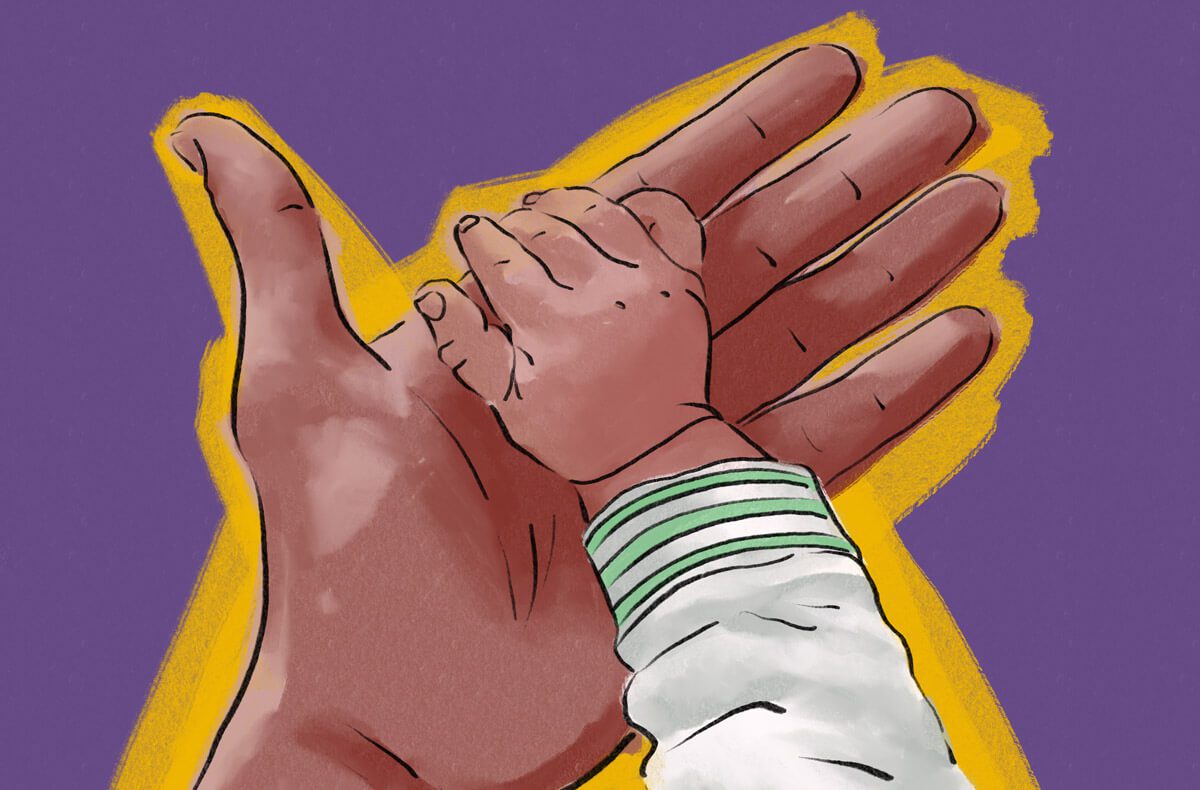
Illustration by Juliana Lagerstedt
Father’s Day is traditionally a time to honor fathers and father figures. But the pandemic altered the historic concept of fatherhood, with many dads spending more quality time with their children and taking on more domestic chores, including hands-on childcare, due to stay-at-home mandates and lockdowns.
However, despite these positive shifts, the absence of fathers in households remains a significant issue.
According to the U.S. Census Bureau, 18.4 million children under 18 live in homes without a biological, step, or adoptive father present. According to the Institute of Family Studies, the number of boys living apart from their biological father has nearly doubled since 1960, from around 17 to 32 percent. However, since 1970, the percentage of children living in father-only families has increased from 1 to 4 percent in 2019.
In an era defined by shifting cultural norms and a renewed emphasis on gender parity, it is critical to reconsider and celebrate the tremendous effect fathers (and father figures) have in shaping the prosocial behaviors and values of their children, particularly young males.
As proof of this trend, dad blogs have gained popularity, as have dad influencers such as Bo Petterson, a father of six adult children who runs DadAdviceFromBo with 2.7 million followers. Dad parody accounts, such as the.mcfarlands (with 3.8 million TikTok followers) and first-time dad accounts with #dadsoftiktok, have proliferated.
Research shows that fathers’ involvement in their children’s lives is associated with many positive outcomes, including better academic performance, improved mental health, and reduced risk of involvement in risky behaviors and criminal activity.
Certainly, it is impossible to dismiss the role that single mothers play in raising boys to be men. Documentaries such as In a Perfect World and A Single Mom’s Story capture some of the experiences of single mothers striving to create a better future for themselves and their children.
Some studies suggest that the impact of a father’s absence in the home on child outcomes is less significant compared to the quality of the father-child relationship. Being present is important, but it is rarely enough.
For many young men, social learning occurs around the dinner table, from the pew, in classrooms, on the turf, and in the media. As a millennial raised by a Baby Boomer father and a boy parent myself, I have spent time unlearning some of the things I learned from my father, who, despite his best attempts, chose a brutal style of fatherhood that he regrets to this day and compensates for by being a doting grandfather.
As a violence prevention researcher, I see in my interviews with young males who engage in violence that role models and mentors remain a pressing need for them. Many may not express this need directly, but it is evident that there is a desire for a role model, someone who can show them the ropes.
During the pandemic, firearm-related homicides and killings among young boys and men reached levels not seen since the worst peak in 1993. According to the U.S. Department of Justice, in 2019, nearly three-quarters of the overall delinquency caseload involved males.
When I talk to service providers who work with young men involved in violence, I often hear one recurring panacea: Mentorship. Studies show role models play a crucial role in violence prevention and can fill the gap left by absent fathers.
An integral part of the violence prevention equation is the role of fathers and father figures in socializing their children, particularly sons, to respect women and others. Children exposed to domestic violence and harsh discipline at home are more likely to become victims or perpetrators of violence in future relationships.
It is critical to adopt culturally congruent programs for racial and ethnic minority fathers who may draw from different schemas of masculinity. Unfortunately, these fathers are often wrongfully stereotyped in parenting and violence prevention programs and described as disengaged and uninvolved.
The positive impact of fathers and father figures extends beyond biological connections. Mentors, coaches, uncles, teachers, and community leaders can provide guidance and support to young men who may not have a paternal figure in their lives.
Evidence-based programs such as Coaching Boys Into Men, Mentors in Violence Prevention, and Beat the Streets utilize this gender-transformative approach by training high school coaches, male student-athletes, professionals in the military, and other sectors to be interventionists and advocates of non-violence.
Nationally, programs such as Head Start and Responsible Fatherhood, which have been in place since the 1960s, continue to be invaluable in assisting fathers in promoting healthy relationships, strengthening parenting skills, and achieving economic stability.
However, these programs face uptake and implementation issues. In March 2023, the Administration for Children and Families released a recommendation on promising approaches for fatherhood programs to resolve critical challenges to engaging and retaining fathers in their programs.
Policymakers, community leaders, family members, and program administrators can help these essential endeavors by creating a secure and stable skill-building environment for fathers who attempt to be present.
Parenting programs that teach life skills like conflict resolution, healthy relationships, and co-parenting challenge gender stereotypes and can support fathers (and father figures) to create a generation of young men who are empathetic, respectful, and committed to a dignified and non-violent future.
It is important to honor men who fulfill these roles every day, not just one Sunday in June.
